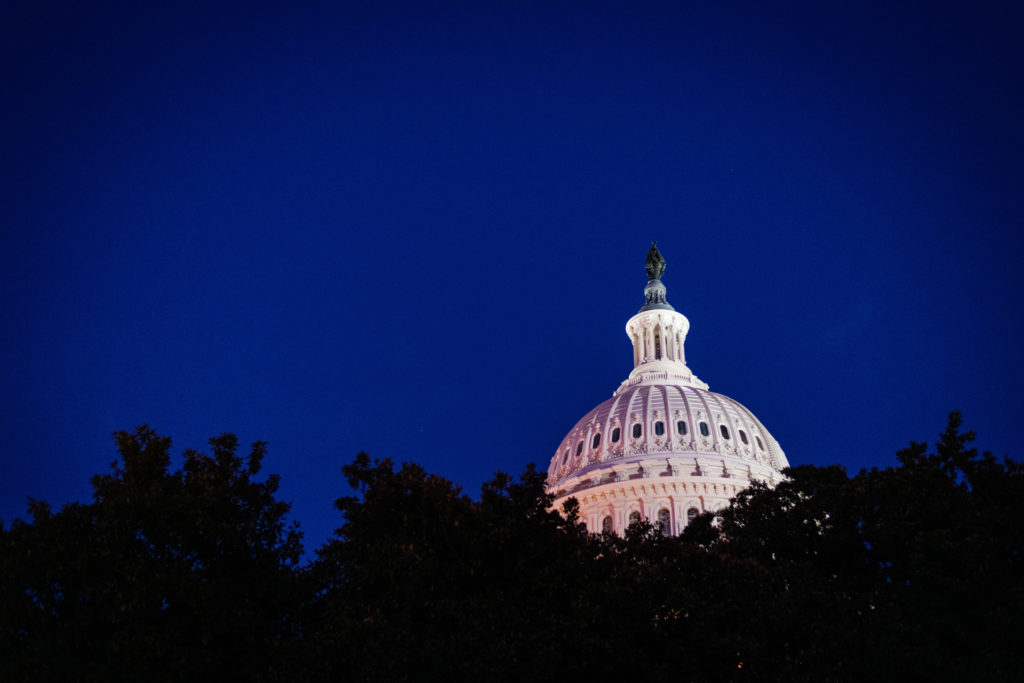Ruby Samim, a junior majoring in public health, said she was isolating in her house last spring when she had eaten so little that she didn’t even have the energy to go on a walk in her neighborhood.
Samim, who suffered from binge eating disorder before the pandemic, said she stopped eating regular meals during the pandemic after comparing herself to celebrities on social media while living at home with no social outlets.
“I was just not happy to be at home and I felt like I was spending a lot of time on social media and TikTok especially and just comparing myself all the time,” she said. “All that was on my phone was just celebrities, influencers. Of course I’m going to compare myself to them because there was no outlet.”
Samim said she would encourage other students facing eating disorders to take a break from social media or to avoid following people who make them feel bad about themselves. She added that students should be aware of what they say to others around them because phrases like “You’ve lost so much weight” may not feel like a compliment to students struggling with eating problems.
“Sometimes even something as small as ‘Oh my gosh, all I had for breakfast this morning was iced coffee’ can be kind of triggering to people who are struggling with not eating enough or feeling like they are binging stuff,” Samim said.
Samim is one of 10 students who said they developed or worsened their eating disorders during the COVID-19 pandemic, when isolation, stress and increased usage of social media made it harder for them to regulate their diets. Students said they didn’t have their peers to hold them accountable for not eating regularly when they were isolated, and social media trends like workouts increased anxiety about their body image during the pandemic.
Maddie Billet, a sophomore majoring in political science, said she struggled with anorexia, an eating disorder where a person restricts their calorie intake for extreme weight loss, since sixth grade and developed bulimia nervosa, a cycle of binge-eating and self-induced vomiting, this March. She said while her physical symptoms stayed the same during the pandemic, her mental health worsened as she observed her friends and influencers on social media strive to lose weight in a “fatphobic” way.
“I like to call eating disorders socially contagious, and once you take the social part out, there’s no one really to learn from besides social media, so it really matters what you’re seeing online,” Billet said.
Diagnoses of eating disorders increased by 25 percent during the pandemic nationwide for people ages 12 to 18, according to a study released in April by the Epic Health Research Network, a research journal dedicated to medicine and health care. The National Eating Disorders Association recorded an increase of about 70 to 80 percent in calls to its helpline over the past year, according to Yale Medicine.
The Colonial Health Center provides individualized counseling and psychological services for students and aims to “improve cognitive, emotional, academic and social functioning,” according to their website. The CHC lists eating disorders as one of its “primary care services offered.”
Madeline Fischer, a sophomore majoring in international affairs who is dealing with disordered eating, said she is worried that the current dining plan won’t cover all her meals and could further restrict her diet. She said if the Foggy Bottom Campus included a dining hall she would feel “inclined” to binge eat due to the greater range of food choices available, but she said she would appreciate the accessibility of a hall on days when she might not eat at all.
“Knowing that there’s a dining hall and that food is readily accessible and all I have to do is say yes and just knowing that it’s there is a good thing,” Fischer said.
Students have reported struggling with food insecurity on campus for years, with nearly 40 percent of students facing the issue in 2018, according to a study released by the Wisconsin Hope Lab.
Nadia Lischke, a sophomore majoring in biology who struggles with binge-eating and disordered eating, said displaying calorie counts and nutrition labels on food and vending machines, which are common in restaurants, is “toxic” for people in eating disorder recovery. She said public displays of this information are harmful for students in recovery because dietary restrictions and hyper awareness of food contents like calories can worsen eating disorders.
“Those things are not helpful,’” she said. “Reading scholarly articles with stats is helpful, yes, but ultimately GW faculty and staff need to learn how to listen to their students and make change. Talking to the eating disorder community and really hearing us and them out is my biggest piece of advice.”
Lischke said professors can reduce the amount of “diet talk,” especially in science classrooms where diet and healthy weight conversations are commonly brought up. She said professors are often unaware that these conversations are “triggering” to students who might have eating disorders.
“As a fat person, whenever anyone talks about not wanting to be fat and or about the ‘damage’ that being fat has on a body, there is a definite shift in the room,” she said.
Experts in eating disorders said isolation during the pandemic increased anxiety and made access to therapy difficult, exacerbating the prevalence of eating disorders.
Mark DeAntonio, the director of UCLA’s Eating Disorders Program, said people with anorexia can lose weight to the point that their Body Mass Index falls below 16, placing them at risk of passing out and losing their ability to think clearly.
“They are really quite debilitated, and they are just totally consumed with exercising, avoiding food, and they lose their ability in general to function both academically, socially,” DeAntonio said.
DeAntionio said while Zoom therapy sessions were largely successful during the pandemic, many counseling services and treatment programs for eating disorders were completely overwhelmed. He said this lack of treatment can worsen eating disorders, since people have to deal with symptoms on their own.
Jennifer Wildes, the director of the University of Chicago’s Eating Disorders Program, said the timeframe for recovery differs between eating disorders, with anorexia nervosa typically taking the longest. She said she has seen students take anywhere from six months to one year to get better, and she recommends that students struggling with eating disorders reach out to the National Eating Disorder Association, which offers virtual treatment services and information on in-person treatment locations.
“Keep in mind that recovery is rarely a linear process so that people can have slips along the way,” Wildes said. “That doesn’t have to mean that you’re a solid loss, and there’s no chance of recovery.”
Cynthia Bulik, the founding director of the University of North Carolina Center of Excellence for Eating Disorders, said she found the lack of structure in daily life and the absence of social support during the pandemic contributed to worsened eating disorders, according to a study she conducted last May. Students agreed, saying the lack of daily tasks and activities during the pandemic contributed to their disordered eating.
Bulik said students with eating disorders shouldn’t feel ashamed or guilty because many people of all backgrounds are also struggling with eating problems.
“There is nothing shameful about having an eating disorder,” Bulik said in an email. “That would be like saying there is something shameful about having asthma. Reach out for help. You are not alone.”
Editor’s note: If you or someone know is in need of treatment for eating disorders, the CHC lists treatment of some eating disorders among its primary care services.








